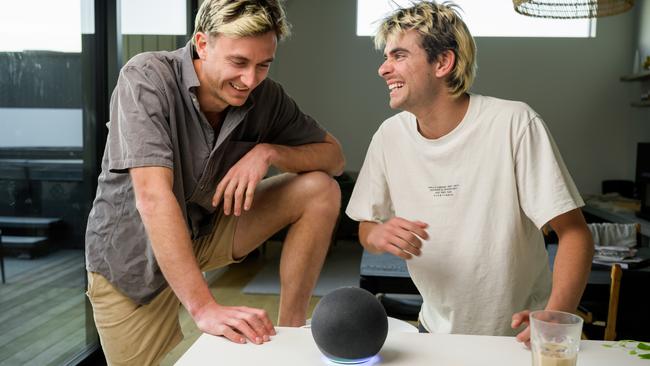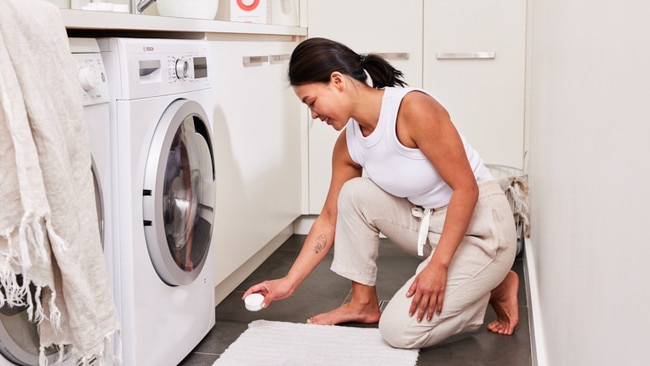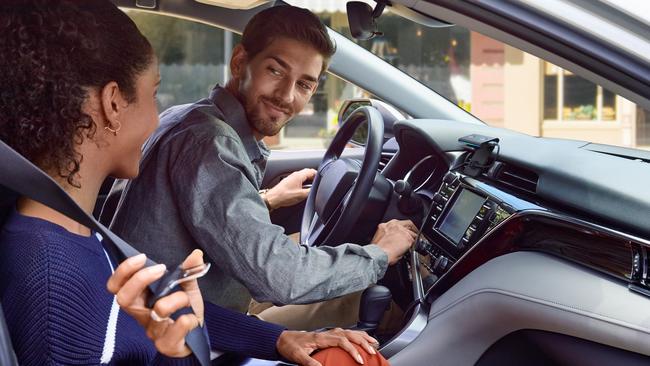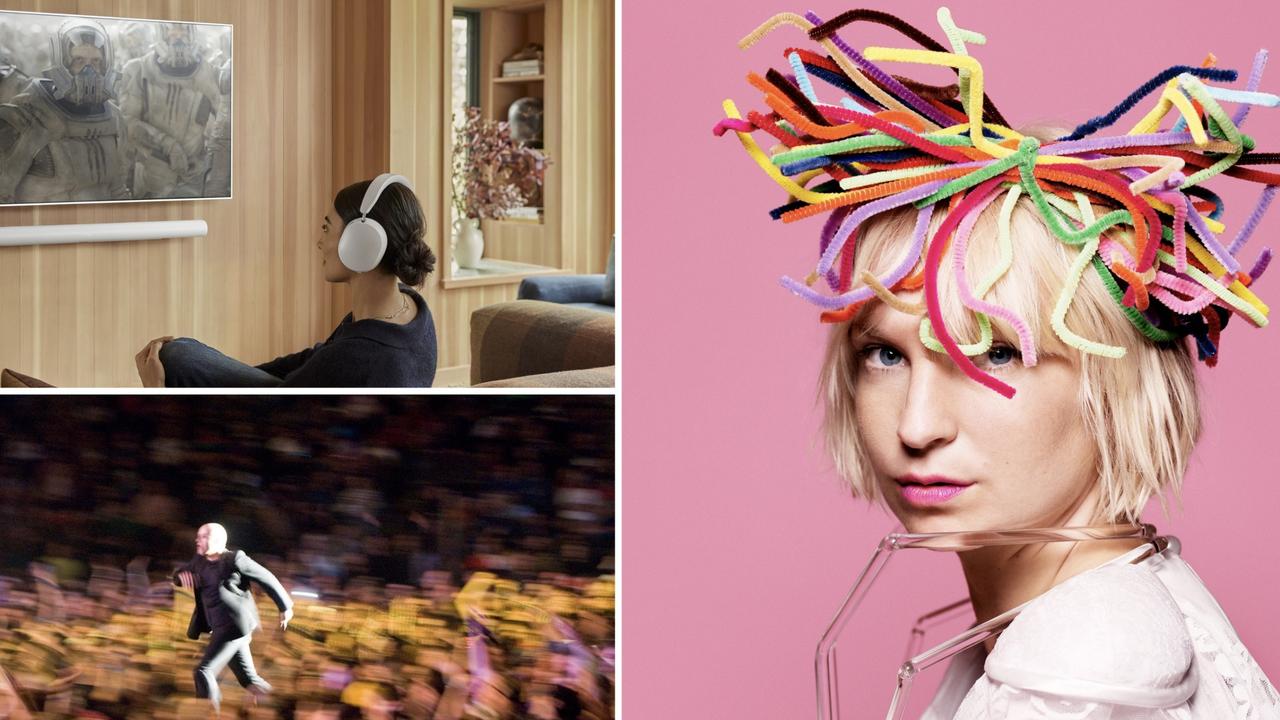Smart home technology is about to get even smarter, as another one million Aussie homes adopt it
Another one million Australian homes have become smart homes, but the technology could soon predict what you want before you want it.

Home Entertainment
Don't miss out on the headlines from Home Entertainment. Followed categories will be added to My News.
Exclusive: Australia is a nation of smart homes, with more than one million households installing connected devices for the first time during the pandemic, according to a new report.
Nearly two in three Aussie homes now feature internet-savvy lights, locks, doorbells, pet feeders or fans, Telsyte research found, and the average household is on track to install at least 34 smart home devices by 2024.
But experts say that could be a conservative estimate that is likely to accelerate later this year, and increasing artificial intelligence in devices could see them do much more, from identifying when residents fall sick to pinpointing security risks outside the home.

Australia’s love affair with smart home devices soared by 15 per cent during 2021, according to Telsyte’s Australian IoT@Home Market Study, which found households had an average of 20.5 smart devices connected by the end of the year, creating a market worth $1.7 billion.
But Telsyte managing director Foad Fadaghi said that figure would grow to at least 34 smart devices in each home by 2024 — 360 million across Australia — though it could rise even higher.
“It could be a lot more,” he said.
“Nearly everywhere you walk throughout the home, almost every aspect can be and will be connected.”
Mr Fadaghi said connected appliances, like smart fridges and washing machines, were likely to become dramatically more popular when prices fell or “a Tesla-like player” entered the market, and more professional installers would offer smart home installations when a new technology standard called Matter launched in mid-2022.
Backed by tech giants including Google, Apple, Amazon and Samsung, Matter promises to simplify smart home connections and see devices from different brands work together.
Gartner analyst Roger Sheng said having just one standard would be “very important” to the future of smart home adoption as users would be able to connect appliances to more parts of their home, like health technology, their home office, and even a connected car.
Introducing more artificial intelligence to smart home devices would also be important, Mr Sheng said, to improve the “accuracy and speed of human instructions” as well as predicting their needs before they made a request.
And, rather than a distant future vision, Mr Fadaghi said this was actually “very close” to reality.
“It’s inevitable that machine-learning will be applied in our smart homes,” he said. “Cameras can see a lot more than just what the human eye can see — they can detect temperatures, for example. A smart camera could tell you you’ve got a fever and that might have health benefits.”
Other examples could include a smart doorbell identifying a stranger that regularly looks at your property from the street, or a sensor detecting an open window and changing the temperature or sounding an alarm.
Smarter home technology is already starting to creep into services in Australia, with local start-up Honey Insurance offering customers its own smart sensors to lower the price of policies.
The three sensors, sent with a hub to connect them, measure for water, sudden temperature changes, and big vibrations, and could be used to mitigate any damage from a fire or water leak. Customers who use them unlock an eight per cent discount.
Honey Insurance communications vice-president Amber Morris said the company’s offer had been embraced quickly and it was now expecting other insurance firms to come “snapping at our heels”.
“The reaction from Australians that they are ready for this,” she said. “There’s definitely more of an appetite for smart home technology than we imagined.”
WHY A SMART HOME NOW EXTENDS TO SMART CARS
Amazon not only wants you to talk to your home but your car too.
The company launched its Alexa voice assistant in vehicles for the first time in Australia just days ago, and executives say it’s about more than just competing for space on the dashboard with tech rivals.
Alexa Auto International director Christian Mentz said adding the assistant to cars was a frequent request from users who wanted to expand the reach of their smart home.
“Customers told us that they would like to have this experience that ties together different parts of their lives,” he said.

“If you have set your personal preferences in your home, you’d often like to have the same preferences in your car.
“It’s time to bring these experiences, services and content all together.”
Mr Mentz said the company worked with Jaguar Land Rover over 18 months to launch Alexa in models from 2020 onwards in Australia, letting drivers control everything from their home’s smart lights to connected air conditioners, while also getting updates from Ring doorbells and making song requests from Spotify.
Audible books, he said, could also be requested in the car, with bookmarks saved so drivers could “continue where they left off with that book in their home”.
Telsyte managing director Foad Fadaghi said connected cars were quickly becoming a “natural extension” of smart homes, allowing drivers to easily control the environment in their vehicles as well as the environment they returned to.
“People want to leave their smart home and get into their car without having to press buttons again,” he said.
But he said competition was fierce in the burgeoning “multi trillion-dollar market” as rumours continued about Apple’s entry into the automotive space and Tesla won over more buyers.
Apple’s CarPlay software currently features in more than 80 per cent of new cars worldwide, according to the company, and Google’s competing Android Auto software recorded more than 100 million downloads by 2020.
More Coverage
Originally published as Smart home technology is about to get even smarter, as another one million Aussie homes adopt it





